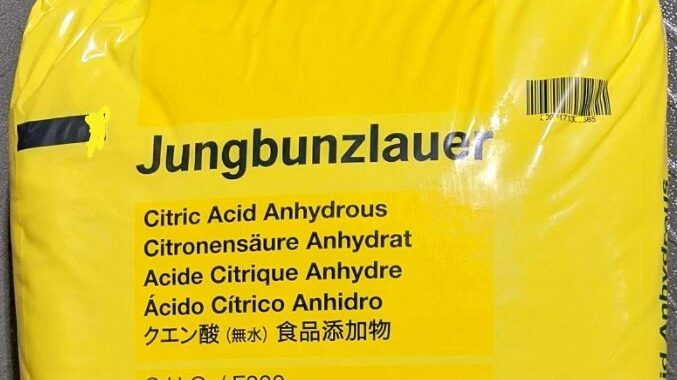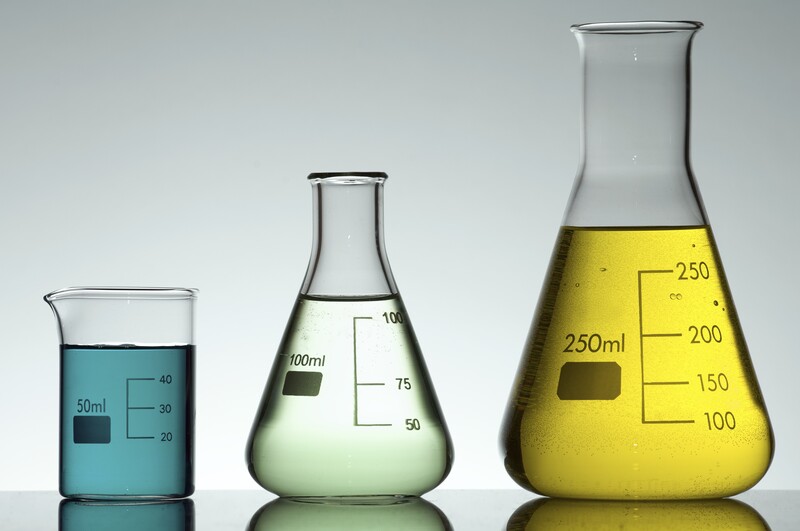Are you searching for the very best citric acid in 50 lb bags or 25 Kg bags (55 Lb)? When you need the very best quality citric acid granular or fine granular citric acid, and you peruse search engines like Google, Bing, or Duck Duck Go, you will find there will be many choices. How do you know for certain which company to buy from to get the very best quality? It can be hard to know how to source the best quality citric acid in bags. This is why we are here to help!
What factors can contribute to quality of citric acid?
Citric acid is made commercially by fermenting a natural yeast. Every company that makes citric acid on a commercial basis uses primarily the exact same method to manufacturer it. However, after the citric acid is produced, it is then packaged, and then shipped, and those processes, may make a difference and all contribute to the quality of the citric acid. The packaging up of the material, including the packaging used, and then the time it takes to get to a port, and then on to a suitable commercial warehouse and then to the end user, all add places where quality can be negatively affected if all of these steps are not taken care of with the utmost care and treated with urgency.

The packaging is critical. Ideally you would want to buy citric acid in a heavy ply plastic bag, and in some cases even a double ply/double bag fiber and plastic if the material is imported from another country like China or Thailand so that the material will not be negatively impacted while in a shipping container on a ship to the country where it is sold.
After the citric acid arrives in to a port, it hopefully is stored in a warehouse where moisture and humidity is controlled so that the product stays at the best quality and maintains the product integrity expected by end users. Secondly, it should not stay in a warehouse for more than 3 to 4 weeks maximum but should be moved closer to the end user markets where it will be used and then again, in to a temperature controlled warehouse so the product integrity is not in any compromised.
Factors to consider and questions to ask suppliers.
Most end users will want to inspect a current Certificate of Analysis of the material. Buyers should pay close attention to the date that the material was manufactured and then work from there to determine how quickly the product has made it to the country it it being sold and used in. Most citric acid is manufactured and sold as food grade, and even pharmaceutical grade, so the date of manufacture is important and should be listed, as noted above, but buyers should also take note of an expiration date and make sure that the product they are buying can be used and consumed well within the period the product has listed as an expiration date.
Ask the company that is selling the citric acid, or any chemical to you if they have a temperature controlled warehouse and how long they have had the material stored. Generally, a reputable company will share that information, and may also offer a slight discount if the material is close to an expiration date. Some companies will also just lower the price and sell the material for a “technical grade” if it is close to the expiration date or has been stored for a while and is not the very best top quality.
One company that is widely known as a great resource for citric acid, is Level 7 Chemical. The owner and staff have many years of experience in the chemical industry, and therefore have the knowledge and know-how to get you the very best chemicals and ingredients, from A to Z, like citric acid. You can visit the website, and search for citric acid, or any other chemical or ingredient. Another approach is to use their customer “Request Quote” form. Check with them whenever you are sourcing citric acid, or any chemical or ingredient. They can help you find just about anything and can get it to you safely and efficiently anywhere in the continental US.
As you may guess, you can also use these tips and these ideas when sourcing any chemical or ingredient and NOT just citric acid.
Let us know what you think about this article in the comments!
